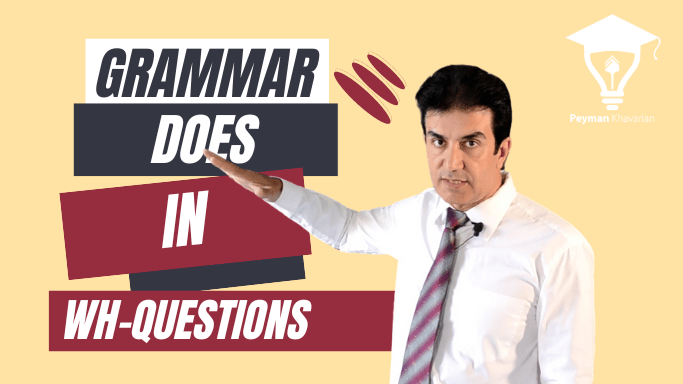The Role of “Does” in WH-Questions

The Role of “Does” in WH-Questions
WH-questions are a fundamental part of English language, named after the interrogative words that start with ‘wh’: who, what, when, where, why, and how. These questions are used to gather information and the word “does” plays a crucial role in forming these questions, especially when dealing with the present simple tense.
The auxiliary verb “does” is used in WH-questions when we are asking about the subject’s actions or behaviors. It is used to make questions for all verbs except the verb “to be” and modal verbs such as can, might, etc.
For example, consider the statement “He plays football.” If we want to ask a question about the object (football), we would say, “What does he play?” Here, “does” is used to form the question, and it precedes the base form of the main verb (play).
Similarly, if we want to ask a question about the subject (he), we would say, “Who plays football?” In this case, we do not use “does” because the question is about the subject.
It’s important to note that “does” is only used in singular third person (he, she, it) in present simple tense. For other persons (I, you, we, they), we use “do”. For example, “What do you play?”
In negative WH-questions, “does” is also used. For instance, “Why doesn’t he play football?” Here, “does” is combined with “not” to form “doesn’t”, which indicates the negative form.
In conclusion, “does” is an essential component in forming WH-questions in English. It helps us ask about actions or behaviors in the present simple tense, contributing to the richness and flexibility of the language.
سوالات WH بخش اساسی از زبان انگلیسی هستند، که نام آنها از کلمات پرسشی که با ‘wh’ شروع می شوند گرفته شده است: who، what، when، where، why و how. این سوالات برای جمع آوری اطلاعات استفاده می شوند و کلمه “does” نقش حیاتی در شکل دادن به این سوالات دارد، به خصوص وقتی با زمان حال ساده سر و کار داریم.
فعل کمکی “does” در سوالات WH زمانی استفاده می شود که ما درباره اعمال یا رفتارهای فرد سوال می کنیم. این برای ایجاد سوالات برای تمام افعال به جز فعل “to be” و افعال modal مانند can، might و غیره استفاده می شود.
برای مثال، در نظر بگیرید جمله “He plays football.” اگر ما بخواهیم درباره object (football) سوال کنیم، می گوییم، “What does he play?” در اینجا، “does” برای شکل دادن به سوال استفاده می شود، و قبل از شکل اصلی فعل اصلی (play) قرار می گیرد.
به طور مشابه، اگر ما بخواهیم درباره subject (he) سوال کنیم، می گوییم، “Who plays football?” در این حالت، ما “does” را استفاده نمی کنیم زیرا سوال درباره subject است.
مهم است توجه داشته باشیم که “does” فقط در زمان حال ساده و برای شخص سوم مفرد (he، she، it) استفاده می شود. برای سایر اشخاص (I، you، we، they)، ما “do” را استفاده می کنیم. برای مثال، “What do you play?”
در سوالات منفی WH نیز “does” استفاده می شود. برای مثال، “Why doesn’t he play football?” در اینجا، “does” با “not” ترکیب شده و “doesn’t” را تشکیل می دهد که نشان دهنده شکل منفی است.
در نتیجه، “does” یک مؤلفه ضروری در شکل دادن به سوالات WH در انگلیسی است. این به ما کمک می کند تا درباره اعمال یا رفتارها در زمان حال ساده سوال کنیم، و به غنای و انعطاف پذیری زبان کمک می کند.







دیدگاهتان را بنویسید